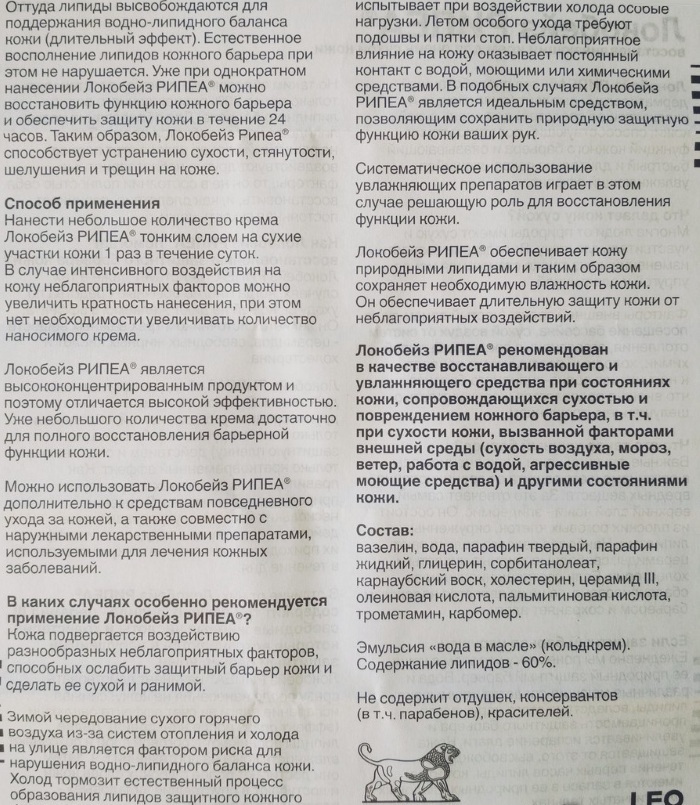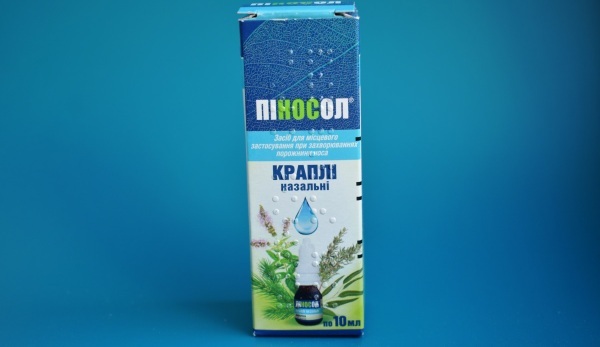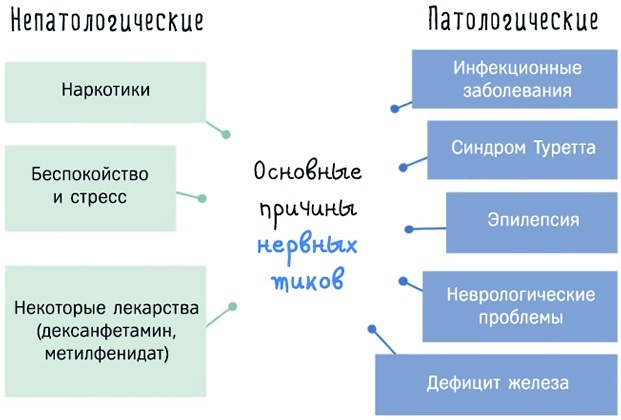Content
- The causes of heart disease
- Complete List of Heart Diseases
- Coronary heart disease
- Myocardial infarction
- Atherosclerotic heart disease
- Arrhythmia
- Intracardiac block
- Endocarditis
- Myocarditis
- Pericarditis
- Hypertonic disease
- Heart defects
- Cardiovascular insufficiency
- Heart neurosis
- Heart Disease Videos
Cardiovascular diseases Is a huge group of various pathologies of the heart, blood vessels and arteries. Each violation has its own symptoms, causes of development and methods of treatment.
The causes of heart disease
There are many different reasons for the development of cardiovascular disease. Each disease has its own provoking factors and symptoms.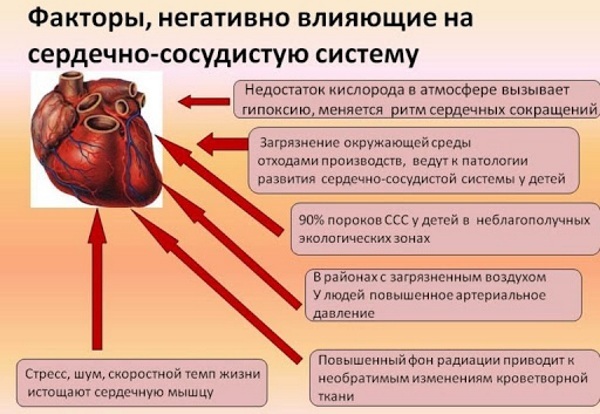
| Violation | Causes |
| Coronary heart disease |
|
| Myocardial infarction |
|
| Atherosclerotic heart disease |
|
| Arrhythmia |
|
| Intracardiac block |
|
| Endocarditis |
|
| Myocarditis |
|
| Pericarditis |
|
| Hypertonic disease |
|
| Heart defects |
|
| Cardiovascular insufficiency |
|
| Heart neurosis |
|
Complete List of Heart Diseases
Heart disease (symptoms can be both mild and pronounced, depending on the degree of their severity) have their own signs and therapy, which are carried out without fail okay. In this case, the methods of treatment and drugs are prescribed only by the attending physician after all studies and confirmation of the diagnosis.
Coronary heart disease
This pathology develops against the background of damage to the coronary arteries, which causes insufficient blood supply to the heart muscle (myocardium). The disease is divided into acute and chronic forms.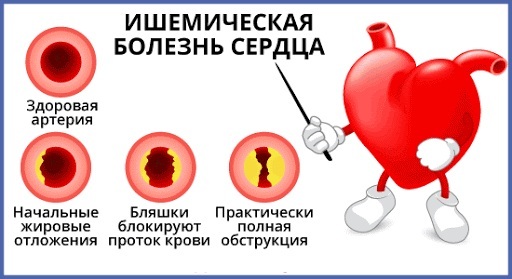
Symptoms:
- pain in the chest area;
- general weakness and malaise of the body;
- lowering blood pressure;
- hyperhidrosis;
- increased heart rate;
- dyspnea;
- nausea and vomiting;
- diarrhea;
- soreness in the back, lower jaw and upper limbs;
- violation of the work of consciousness;
- fainting conditions.
Psychoemotional disorders and fear of death also occur. Ultimately, pathology can lead to respiratory and cardiac arrest and cause death. Treatment of the disease includes lifestyle adjustments, medication, surgery (in severe cases), or the use of special endovascular techniques.
Preparations:
- Antiplatelet agents: Clopidogrel, Dipyridamole, Acetylsalicylic acid.
- Beta-blockers: Bisoprolol, Metoprolol, Timolol.
- Cholesterol-lowering drugs: Atorvastatin, Cholestyramine, Lipanor, Crestor.
In the absence of contraindications, diuretics, antiarrhythmic drugs, and nitrates may be prescribed.
Myocardial infarction
The defeat occurs as a result of insufficient supply of blood to the heart muscle, which leads to necrosis of some areas.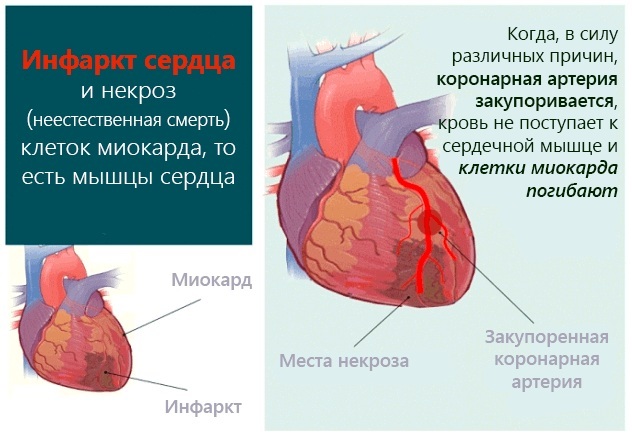
Symptoms:
- sweating;
- choking and coughing;
- nausea, vomiting;
- epigastric pain;
- swelling;
- development of shortness of breath;
- dizziness and tinnitus;
- loss of consciousness;
- pain in the hand, under the shoulder blades, in the area of the lower jaw or iliac cavity.
In some cases, paraxysmal tachycardia develops.
Treatment:
- Pain relievers: Nitroglycerin, Morphine, Atropine.
- Thrombolytics and anticoagulants: Streptase, Thrombo-ACC, Heparin, Warfarin.
- Antiarrhythmic drugs: Bisoprolol, Lidocaine, Retabolil.
- Cardiac glycosides: Korglikon, Furosemide.
Sometimes sedatives, antipsychotics and tranquilizers may be prescribed.
Atherosclerotic heart disease
Heart diseases (the symptoms of each process are individual) often require an integrated approach to their treatment. This disease is characterized by the deposition of cholesterol in the area of blood vessels and arteries, which can lead to organ death.
Symptoms:
- pain in the chest area;
- difficulty swallowing;
- voice changes (hoarseness);
- increased blood pressure;
Therapy includes lifestyle changes and medications.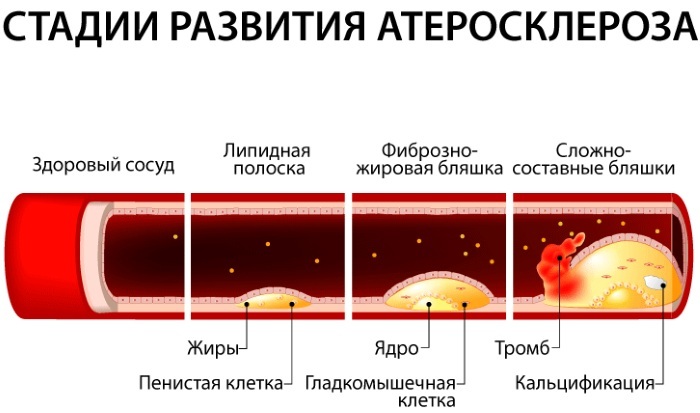
Groups of funds:
- Statins: Zokor, Lipramir, Crestor.
- Fibrates: Traikor.
- Sequestrants: Cholestyramine, Colestipol.
Vitamins A, C, E, polyunsaturated fatty acids and nicotinic acid can also be additionally prescribed.
Arrhythmia
Arrhythmia is characterized by impaired conduction of the heart. At the same time, disruptions in the regularity and heart rate also occur.
Signs:
- malfunctions of the body;
- feeling of sinking heart;
- pain in the chest area;
- general weakness;
- dizziness;
- fainting;
- suffocation;
- shock.
Therapy is selected based on the complexity of the disease and is divided into conservative and medication.
Preparations:
- Potassium and calcium channel blockers: Amiodarone, Verapamil.
- Adrenoblockers: Egilok, Nadolol.
- Cell membrane stabilizers: Propafenone, Trimecaine.
- Anticoagulants: Warfarin.
- Antiplatelet agents: Acetylsalicylic acid.
- Oral anticoagulants: Xarelto, Pradaxa.
When taking medications, it is necessary to systematically undergo various blood tests.
Intracardiac block
Pathology consists in a violation of the conduction of electrical impulses transmitted from the bundle of His to cardinal tissues, which causes the heart to contract.
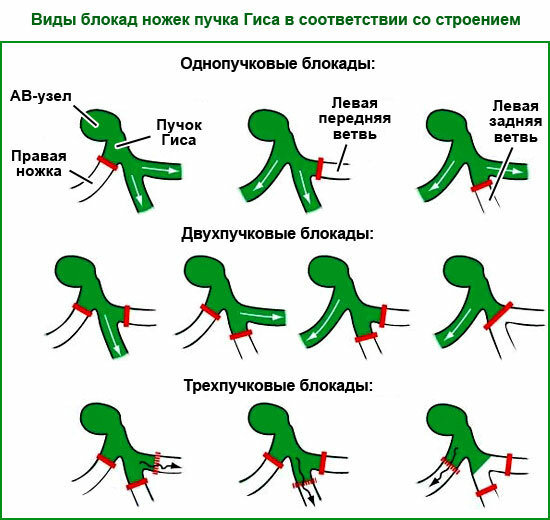
Symptoms:
- soreness in the chest area;
- acceleration or decrease in heart rate;
- general weakness of the body, drowsiness;
- irritation and other mental disorders;
- headaches;
- dyspnea;
- visual disturbances;
- violation of coordination of movements;
- interruptions in blood pressure.
Treatment of pathology is aimed at changing the lifestyle and taking medications. In some cases, surgery may be done.
Groups of funds:
- Antihypertensive drugs: Akkuzid, Listril.
- Antiarrhythmic: Propafenone, Digoxin, Sotalol.
- Stimulants: Atropine, Adrenaline.
At the same time, it is forbidden to use glycosides during treatment.
Endocarditis
The cardiovascular system can be exposed to infectious agents that lead to the development of inflammatory processes. These disorders include endocarditis. With the development of the disease, the inner lining of the heart is damaged, which causes symptoms characteristic of infections.
Signs:
- soreness in the chest area;
- development of shortness of breath;
- increased heart rate;
- change in nail plates;
- blanching of the skin;
- fast fatiguability.
With an infectious lesion, characteristic symptoms develop in the form of fever, chills, headaches and muscle pains. Treatment can be complex and includes medication and surgery.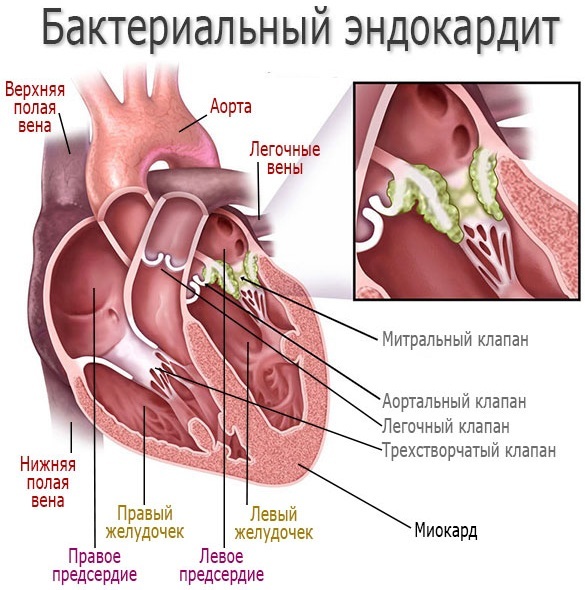
Preparations:
- Antibacterial agents: selected depending on the microorganisms that caused the disease.
- ACE inhibitors: Captopril, Benazipril, Fozinopropyl.
- Aldosterone antagonists: Spironolactone.
- Beta blockers: Nadolol, Atenolol.
- Diuretics: Indapamide, Mannitol.
- Glycosides: Digoxin.
Also, as an additional treatment, it is necessary to adhere to dietary nutrition and give up bad habits.
Myocarditis
Myocarditis is a pathological process, the development of which is caused by myocardial damage by infectious, allergic or toxic effects. In this case, there is a violation of the work of the heart. Signs of the disease can be asymptomatic or pronounced.
Typical manifestations:
- feverish condition;
- fast fatiguability;
- violation of heart rhythms;
- palpitations;
- lowering blood pressure;
- dyspnea.
Treatment of the disorder consists in taking medications or surgical interventions. In this case, the patient needs rest and bed rest.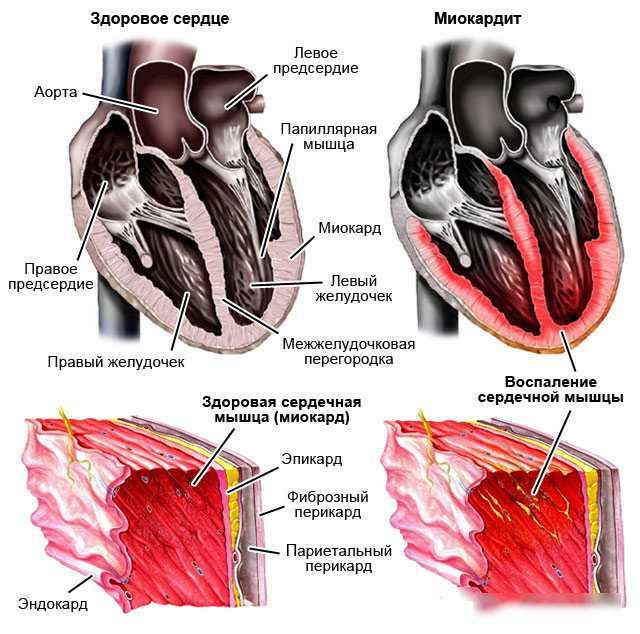
Treatment with drugs is carried out according to the principle of immunosuppressive therapy with the appointment of such drugs as Cyclosporine, Azathioprine and Prednisolone.
Pericarditis
Heart disease (symptoms for some disorders may be absent) can occur as a result of other disorders and pathological processes in the body. Violation of the heart in this case is associated with inflammatory processes that affect the outer shell of the organ.
Symptoms:
- heartache;
- temperature increase;
- chills;
- dyspnea;
- general malaise;
- cough (mostly dry);
- feverish condition;
- hiccups;
- pallor or cyanosis of the skin;
- swelling;
- swallowing problems.
Treatment can be medical, surgical or complex, depending on the form and severity of the disease.
Preparations:
- For blood thinners: aspirin.
- NSAIDs: Ibuprofen, Colchicine.
- Antibacterial agents - depend on the microorganism that provoked the development of the disease.
- Glucocorticosteroids: Decorin, Prednisolone.
- Anti-TB drugs: Isoniazid, Ethambutol, Thioacetazone.
It is also recommended to observe dietary nutrition and lifestyle adjustments (rejection of bad habits).
Hypertonic disease
This disease occurs as a result of dysfunction of the higher centers responsible for the regulation of vascular activity.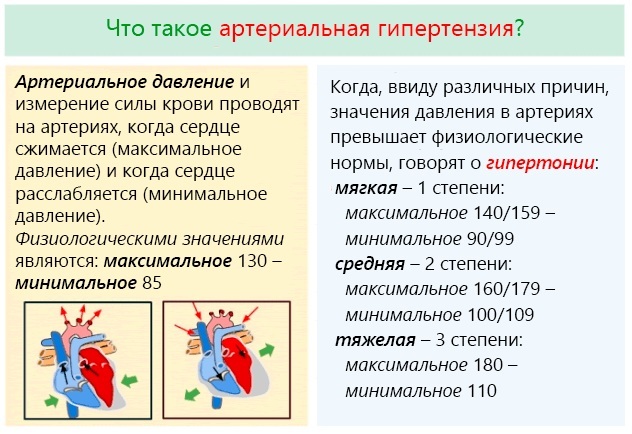
Signs:
- pain in the chest area;
- general weakness and malaise;
- increased blood pressure;
- noise in ears;
- dyspnea;
- flickering of midges before the eyes;
- chills;
- swelling;
- tremor;
- headaches;
- nausea and vomiting.
Treatment is aimed at adjusting the lifestyle and taking medication.
The following drugs are prescribed as drugs:
- Diuretics: Spironolactone.
- Antihypertensive drugs: Vamloset, Logimax.
- Beta-blockers: Metaprolol, Bisoprolol.
- Lipid-lowering and hypoglycemic agents: nicotinic acid and its derivatives, statins, fibrates, Gliclazide, Metformin.
- Sedatives: Valocordin, valerian extract.
- Disaggregants: Aspirin, Clopidogrel, Warfarin.
Surgery for this type of disorder is not performed.
Heart defects
Heart diseases (symptoms of diseases can be similar to each other, therefore, mandatory diagnosis is required) can develop against the background of congenital organ pathologies. Heart defects are a large group of pathologies accompanied by anatomical changes in the organ and leading to various disorders in its work.
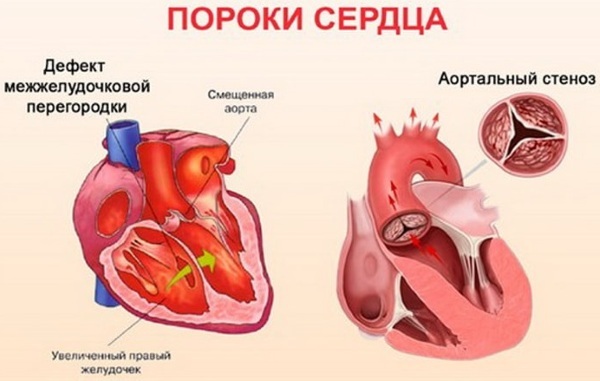
Symptoms (depending on the type of anomaly):
- cyanosis of the skin or mucous membranes;
- pallor of the skin, cold limbs;
- interruptions in heart rhythms;
- tachycardia;
- irritability;
- fatigue;
- pulsation in the region of the vessels of the neck;
- dyspnea;
- developmental retardation;
- the presence of a heart murmur;
- heart failure.
Against the background of anomalies, various complications can develop, up to a heart attack and death, therefore, children born with defects require immediate medical attention.
Hereditary heart defects require exclusively conservative treatment. In this case, drugs are not prescribed.
Cardiovascular insufficiency
Pathology is caused by insufficient functioning of the heart, against which there are violations associated with the supply of blood to all parts and organs of the body.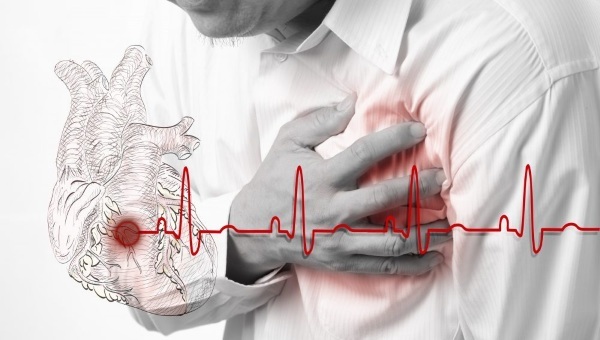
Symptoms:
- shortness of breath with physical activity;
- decrease or increase in blood pressure;
- the formation of puffiness;
- cough and shortness of breath;
- difficulty breathing;
- arrhythmia;
- pallor of the skin;
- sweating
Treatment can be medication and surgical (implantation of pacemakers). It is also necessary to adjust the way of life, adhere to a diet, give up bad habits and excessive physical exertion.
The drugs are ACE inhibitors (Captopril), diuretics (Indapamide) and beta-blockers (Metaprolol).
Heart neurosis
Cardioneurosis develops against the background of internal or psychosomatic disorders and leads to various disorders of the cardiovascular system.
Signs of violation:
- pain in the chest of a different nature;
- feeling of lack of oxygen;
- panic attacks;
- increased sweating;
- arrhythmia;
- feeling of palpitations.
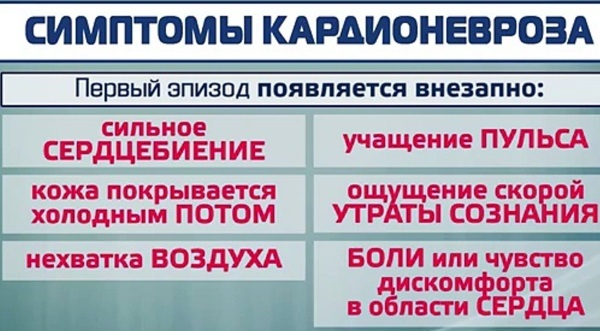
Treatment of cardiac neurosis is aimed at restoring the activity of the vegetative-vascular system. For this, various sedatives (Novo-Passit, Tenoten) or tranquilizers (Adaptol, Gidazepam) can be used.
In some cases, drugs can be used whose action is aimed at restoring the metabolic functions of the brain - Glycine, Phenibut.
Diseases of the cardiovascular system, especially those occurring in a chronic form, require constant monitoring by a treating specialist. At the first symptoms of violations, it is necessary to urgently consult a specialist, since this group of diseases can lead to serious consequences, including death.
Heart Disease Videos
Prevention of cardiovascular diseases:

